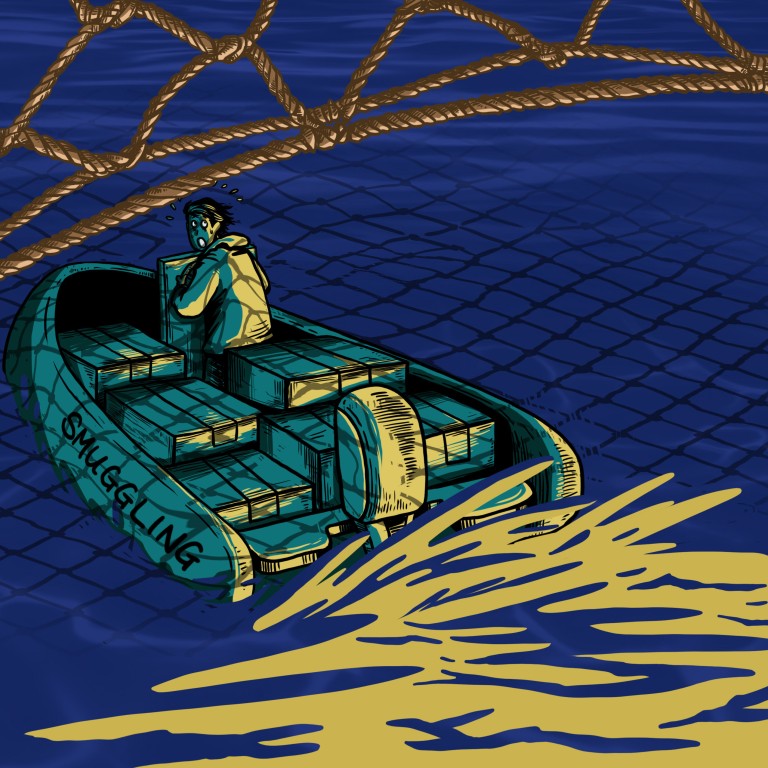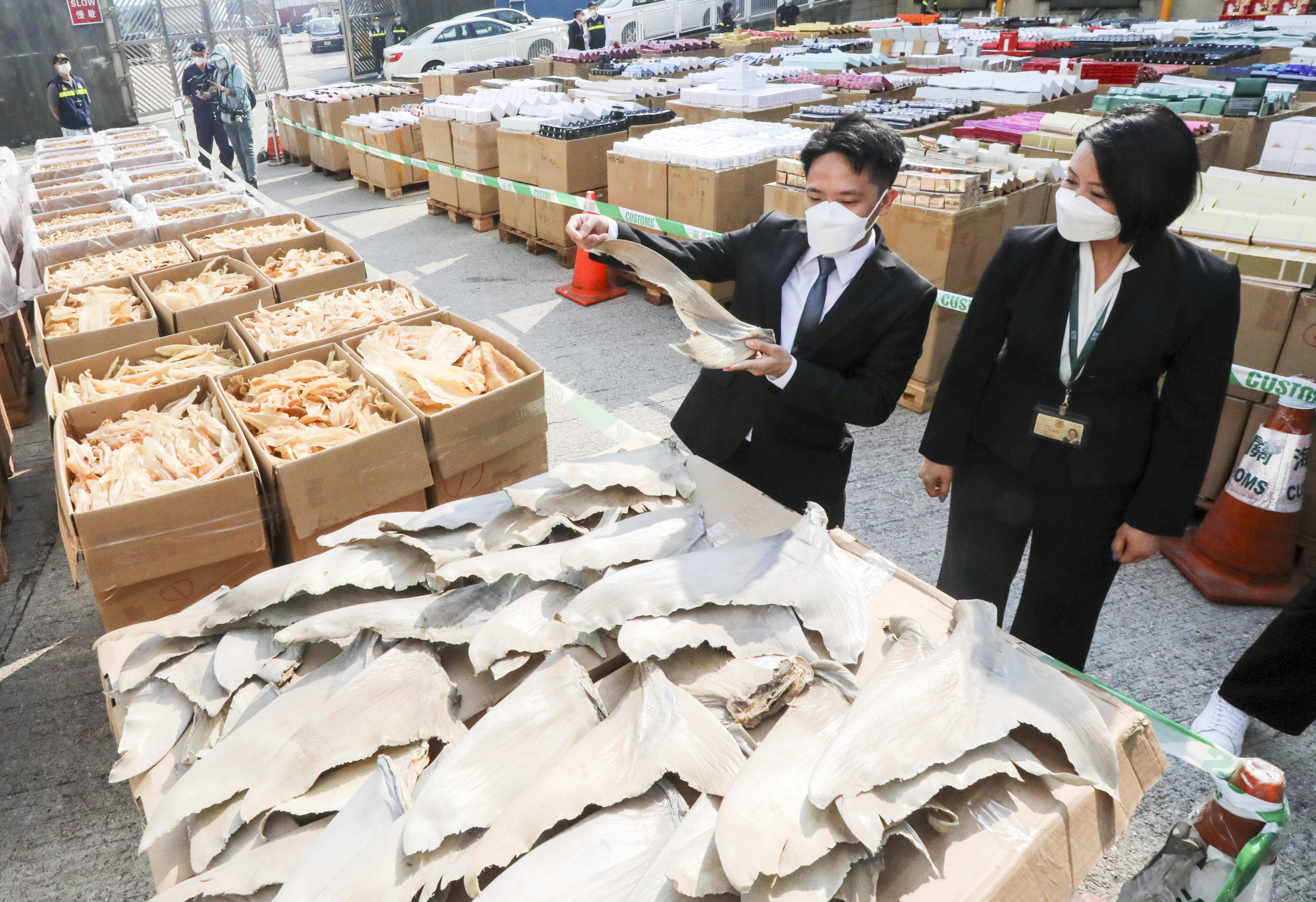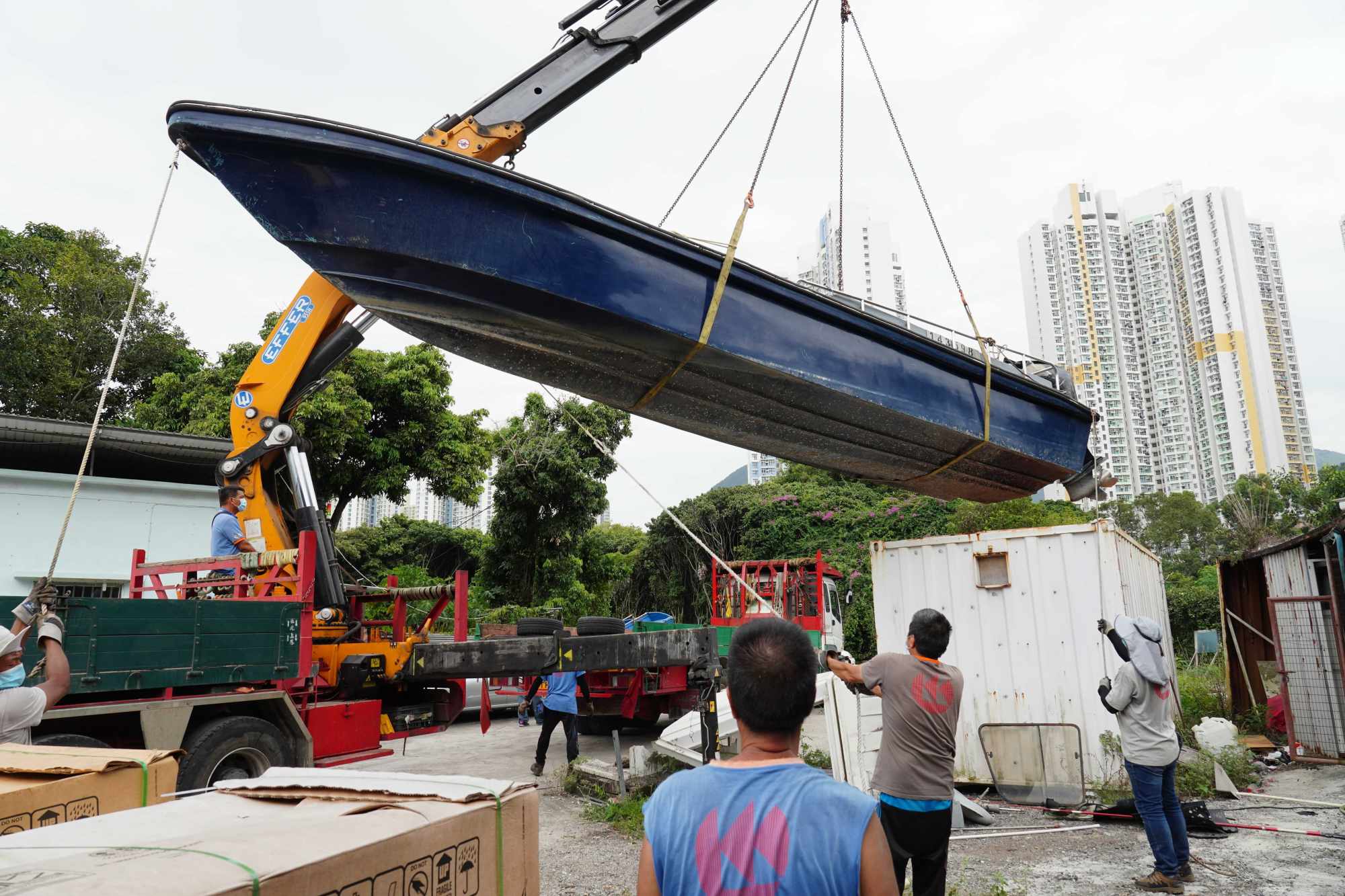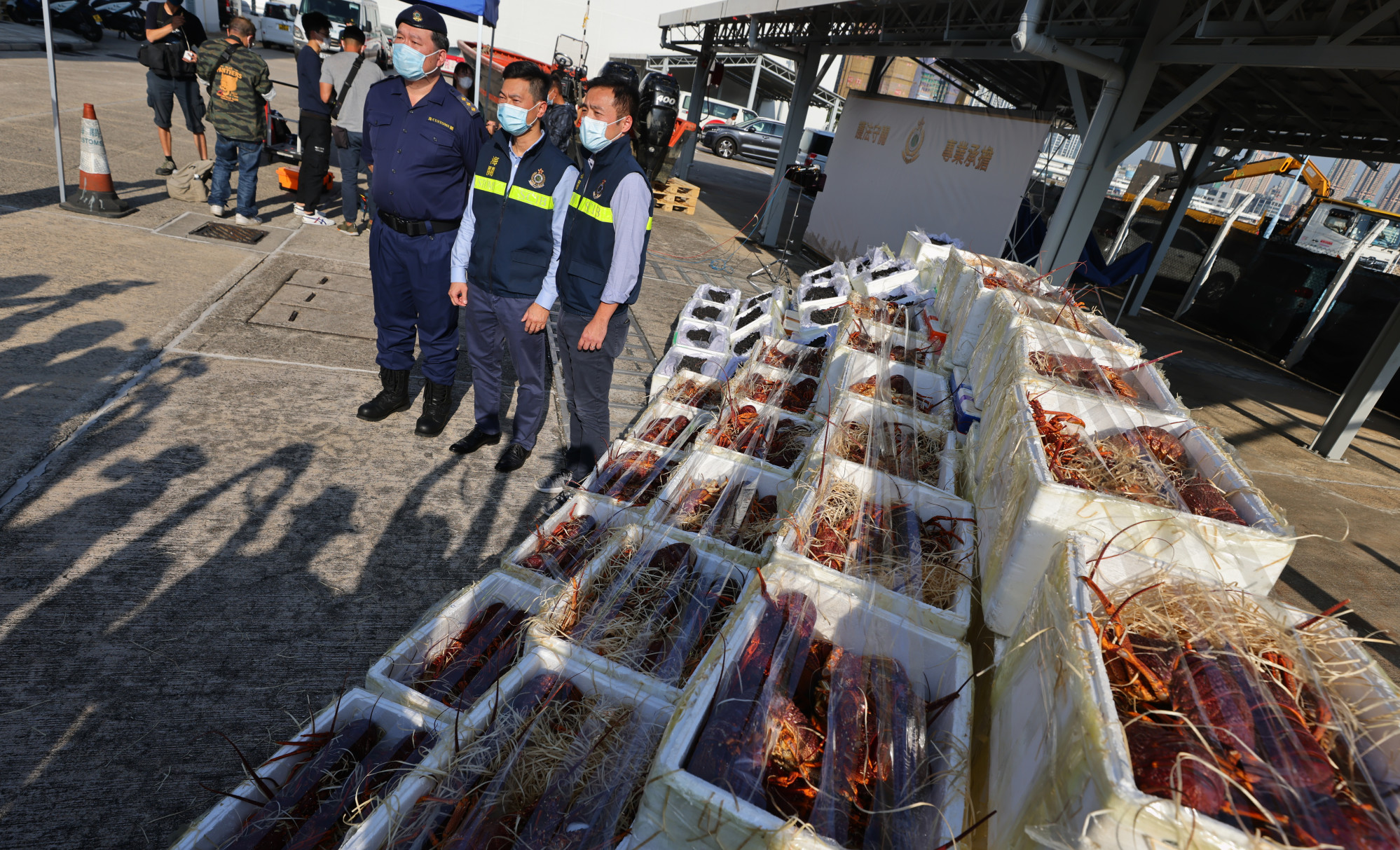
Sea change: how Hong Kong law enforcers are turning the screw on cross-border smugglers
- Death of female police officer in high-speed chase sparks action, change of tactics by authorities
- Cross-border smuggling gangs switch strategies, modes of operation to evade monitoring, arrest
Hong Kong authorities are on the lookout for cross-border sea smugglers hoping to make a holiday season comeback after stepped-up enforcement resulted in more than HK$2.2 billion (US$282 million) worth of contraband products being seized so far this year.
That was triple the HK$712 million in contraband seized from illegal maritime trade between the city and mainland China during all of last year. In 2019, HK$367 million worth of goods were seized.
This year’s dramatic rise followed the death of a female police officer during a high-speed chase at sea in September, and subsequent spike in anti-smuggling operations in October.

Customs officers that month seized a record HK$1.2 billion worth of high-end products hidden in 24 containers on a ship bound for the mainland.
Smuggled goods bound for the mainland range from dried seafood and products made from endangered species, to luxury handbags, electronics, cosmetics and skincare items, pricey food, wine and liquor as well as frozen meat.
A senior officer, who spoke on condition of anonymity, said: “There is great demand for these products on the mainland, as living standards have risen and mainlanders desire luxury items.”
The officer added: “The illegal logistics operations are designed to evade hefty mainland tariffs and stringent import restrictions.”
China banned the import of some food items in 2020, including an informal barring of Australian lobsters amid an ongoing political row.

The goods seized in anti-smuggling operations are usually imported into Hong Kong legally but have no export documents.
In Hong Kong, the illegal import or export of goods is punishable by up to seven years in jail and a HK$2 million fine under the Import and Export Ordinance.
Superintendent Cheng Tak-hei, of customs’ syndicate crimes investigation bureau, said the HK$1.2 billion worth of contraband seized in October could have been sold for more than HK$3 billion across the border.
A law enforcement source involved in anti-smuggling operations said the potential of huge profits had drawn gangs from three major triad societies in Hong Kong – Sun Yee On, Wo Shing Wo and 14K – into the illegal trade.
“Seizures of illegal goods could make them suffer losses and force some gangs out of business, but others will take over quickly,” he said.
He said triad-controlled syndicates were believed to receive as much as 10 per cent of the value of the goods from each delivery.
“A lot of people are eager to get a share of this high-profit business,” he said.

The source said some well-organised syndicates were believed to have their own fleets of barges, speedboats and delivery trucks.
He said the gangs bought goods from all over the world for their mainland clients, and stored them in remote warehouses and container yards in the New Territories while waiting to make the deliveries.
In September, senior inspector Lam Yuen-yee died after she and three other officers fell overboard when their vessel was rammed by a turbocharged speedboat they were trying to intercept in mainland waters.
She was promoted posthumously to chief inspector. The other officers were rescued, but the suspected smugglers got away.
In October, police in neighbouring Guangdong province arrested two mainland men and seized a speedboat in connection with Lam’s case. One of the men was believed to have been the speedboat driver.

The incident prompted Hong Kong and mainland authorities to step up action against cross-border smugglers, but the sources said the gangs were expert at changing tactics to avoid being caught.
Smuggling by sea surged during the coronavirus pandemic, as multiple land border checkpoints have been closed for almost two years and mainland shoppers could not visit Hong Kong.
Some gangs exploited the opportunity by smuggling luxury watches, designer clothing and limited-edition items to buyers on the mainland.
Last year, even pets were smuggled to avoid quarantine and be reunited with their owners.
Their owners – believed to be mainland Chinese working or studying abroad who returned home – paid as much as 40,000 yuan (HK$48,900) for a dog or cat sent via Hong Kong to avoid stringent import restrictions.
HK$1.2 billion sea haul marks biggest-ever seizure for Hong Kong customs
On August 20 last year, four cages with 12 live dogs of various breeds, including Labradors, Pomeranians and poodles, were among HK$37 million worth of goods seized on a mainland-bound speedboat. The haul included abalone, wine and electronic products.
Several days later, 15 carcasses of cats and dogs washed ashore in three cages on two Hong Kong beaches. Law enforcers believed the animals were dumped overboard by smugglers being pursued.
Over the past two years, there has also been rampant smuggling of frozen meat. Smugglers have been found using barges as “floating warehouses” to store the meat until it is picked up by speedboat for delivery to the mainland.
More than 1,000 tonnes of frozen meat could be shipped this way daily, the Post learned.
‘Guerilla tactics’ to smuggle frozen meat
After the officer died in September, the smugglers’ speedboats disappeared from sight in the city’s northwestern waters.
They switched to using cargo vessels instead. As enforcement action targeted these vessels, smugglers built secret compartments in shipping containers to hide their goods.
They have recently resorted to “guerilla tactics” to resume frozen meat deliveries by speedboat.
Last month, their floating warehouses were seen in the waters off Lamma Island, believed to be operating on a smaller scale. Sources said the gangs kept their barges moving to avoid detection.
For other items such as electronic goods, food and products from endangered animals, the gangs have been using secluded coastal areas as loading sites, making it difficult for police and customs officers to spot them.
Trucks send smuggled goods to loading bays in areas such as Tuen Mun, Lantau Island and Lau Fau Shan, with speedboats arriving from across the border to load up and race back.
Aside from using lookouts on land and sea, the gangs have taken to deploying drones with night-vision cameras to spot law enforcers. If officers show up, the gangs dump the goods and flee by speedboat.
Over 2019 and last year, law enforcement agencies bought 12 fast-pursuit craft worth HK$169 million to replace existing vessels, including some in use for about 20 years.
But in the wake of the officer’s death, customs chief Louise Ho Pui-shan said last month that her team would focus more on land-based raids and information sharing rather than dangerous interceptions at sea.

While sea patrols and surveillance continue, law enforcement agencies were doing more to monitor smuggling activity on land, targeting the places where illegal goods are stored.
In October and November, Hong Kong authorities seized more than 70 speedboats suspected to be used for smuggling.
Police raided two container yards in the New Territories over two weeks last month, seizing 7,300 tonnes of frozen meat worth more than HK$2.5 billion that may have been destined for the mainland.
‘Guerilla tactics at sea’: smugglers of frozen meat make comeback in Hong Kong
Law enforcers are also on the lookout for cross-border trucks being used for illegal deliveries.
“The smugglers keep changing tactics, delivery routes, types of transport and concealment methods to avoid detection and arrest,” a source said.
He expected a rise in cross-border smuggling activities in the next two months due to the high demand for contraband products in the mainland over the Christmas and Lunar New Year season.
“We will continue to exchange intelligence with mainland authorities and spare no effort in the fight against such activities,” he said.
Members of the public can report suspected smuggling activities by calling the Customs and Excise Department’s 24-hour hotline at 2545 6182.

